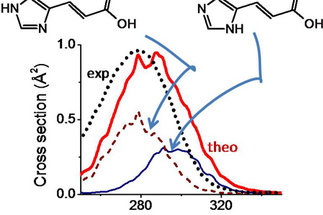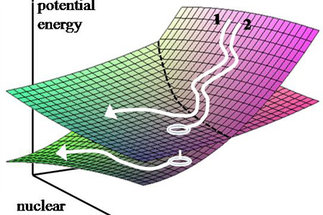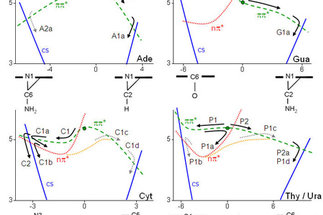Excited States and Photodynamics Simulations
Prof. Dr. Mario Barbatti
Sep 2010 - Sep 2017
Mario Barbatti became Professor at the Institut de Chimie Radicalaire of Aix-Marseille Université in November 2015. Information on his current research is available here. This web page documents the activities of his group at the Max-Planck-Institut für Kohlenforschung (until 2015).
The Born-Oppenheimer approximation is the most fundamental hypothesis in chemistry. On it rests our chemical intuition about molecular structure. In many situations, however, when the molecular system owns enough energy to explore unusual regions of the configuration space, the Born-Oppenheimer approximation may fail. In such regions, the adiabatic surface driving the time evolution of the system branches and the nuclear wavepacket will split among a manifold of states.
The occurrence of these nonadiabatic effects is not only common for a large number of problems, ranging from collision reactions to photochemistry, but it is the basis for key biochemical phenomena, such as light detection and the photostability of the genetic code.
The research in Barbatti's group is mainly focused on nonadiabatic processes that occur after molecular photoexcitation. These investigations are carried out by quantum-chemical calculations and excited-state dynamics simulations. Besides direct applications, the group also works on methodological developments, such as those included in the NEWTON-X program.
Research Topics:
Research Reports:
- Research Report Barbatti 2008-2010 175.96 kB
- Research Report Barbatti 2011-2013 201.5 kB
- Research Report Barbatti 2014-2015 405.99 kB



